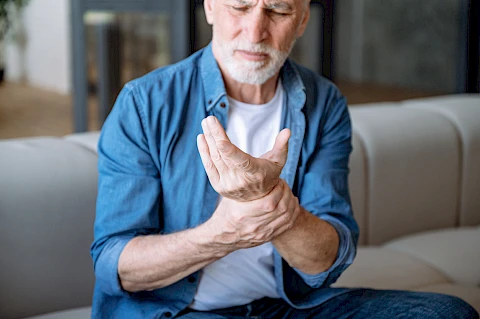
As our loved ones age, including those dealing with Parkinson's disease, their health becomes a growing concern. Parkinson's primarily affects movement, but it also impacts overall well-being. One crucial aspect often overlooked is bone health. Seniors with Parkinson's are at a higher risk for bone-related issues, making it essential for caregivers to pay extra attention to this area.
The Risks
Parkinson's disease increases the likelihood of falls due to symptoms like tremors and stiffness. These falls can lead to severe injuries, especially when bone health is compromised.
Osteoporosis, a condition that weakens bones, is more prevalent in seniors with Parkinson's. The combination of weakened bones and frequent falls raises the risk of fractures, which can have serious consequences, including increased healthcare needs and reduced independence.
Strategies for Maintaining Strong Bones
Maintaining strong bones is possible with the right strategies. Nutrition plays a vital role. Ensuring a diet rich in calcium and Vitamin D can significantly support bone strength. Foods like dairy products, leafy greens, and fortified cereals are excellent choices.
Exercise, when done safely, is another key factor. Regular, gentle exercises tailored for Parkinson's patients can improve strength and balance, reducing fall risk while promoting bone health. Simple activities like walking or supervised strength training can be beneficial. You should always check with your doctor before trying out any new exercise routines.
Medications also play a role. Caregivers should work with healthcare providers to manage any medications that might affect bone density, ensuring the medication plan supports overall health.
Fall Prevention Techniques
Preventing falls is more than just an ounce of prevention—it's a critical part of protecting bone health. Making home safety modifications can drastically reduce fall risks. Ensuring clear walkways and installing grab bars in key areas, like bathrooms, can make a significant difference. Assistive devices, such as walkers or canes, can help seniors maintain their balance.
These tools greatly enhance mobility and safety when properly used. Training caregivers to recognize and mitigate fall hazards is equally important. By staying vigilant and encouraging safe practices, caregivers can create a safer environment for their loved ones.
The Role of Caregivers
Caregivers are pivotal in supporting seniors with Parkinson's in maintaining bone health. Regular monitoring and encouragement can make a world of difference. Helping loved ones stay active and ensuring they follow a nutritious diet supports bone health directly.
Regular medical check-ups and bone density tests are essential. These assessments can provide up-to-date information on bone health, allowing caregivers to adjust care plans accordingly.
Taking a proactive approach to bone health not only enhances the quality of life but also builds a positive environment where seniors feel valued and cared for.
Senior Helpers Somerset Offers Specialized Care for Seniors With Parkinson's
In the context of Parkinson's disease, bone health cannot be ignored. It's a component of senior care, impacting mobility and independence. Caregivers have the power to make a significant difference with strategies aimed at reinforcing bone health and preventing falls.
For those seeking dedicated support and comprehensive Parkinson's care, consider reaching out to professional resources. Senior Helpers Somerset offers specialized Parkinson's care services tailored to the unique needs of seniors. If you're in Plainfield, Bridgewater, Edison, Basking Ridge, or Somerset, contact us to learn more about how we can help your loved ones maintain their bone health and overall well-being.